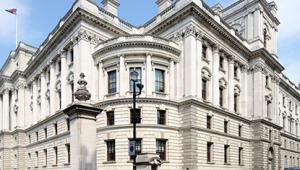Road schemes have dramatically increased traffic and damaged the countryside, says The Campaign to Protect Rural England in research released today.
The government should find alternatives to people travelling by car, such as reopening rail lines and promoting housing on brownfield sites closer to jobs and services, the report The end of the road? states.
It comes as Highways England begins consulting on which road schemes will receive extra funding through its road investment strategy - set to triple to £3bn a year by 2020 – up from £1bn in 2016.
The government initially set out a £15bn road investment strategy in 2014 calling it the “biggest, boldest and most far-reaching roads programme for decades”.
CPRE commissioned consultants Transport for Quality of Life Community Interest Company (TfLQ) to examine 86 official studies of completed road schemes. The report looks at road building over the past two decades.
The charity says its study challenges government claims “the economic gains from road investment are beyond doubt”, road-building will lead to “mile a minute” journeys and the impact on the environment will be limited ‘as far as possible’.
Ralph Smyth, CPRE’s head of infrastructure and legal, said: “The government is keen to sell the biggest road-building programme since the 1970s, but this is a programme that will forever fail on its own terms, producing a depressing, self-perpetuating cycle of more and more roads that do little for the economy and harm the countryside.
“The government should reopen old rail lines, offer people travel options in town and countryside, and harness new technology to make more efficient use of road space. “It should promote new housing on brownfield sites closer to jobs and services, rather than unleash car-dependent sprawl on green fields.” The road investment strategy needs to be reset – not receive three times more funding, he added.
According to the research the CPRE said of the roads promoted for their benefits to the local economy, just one in five demonstrated any evidence at all of economic benefit, and that was weak. More than half of the road schemes analysed harmed protected landscapes and designated environmental sites, including National Parks, Areas of Outstanding Natural Beauty, ancient woodland and historic places.
Bridget Fox, sustainable transport campaigner at Campaign for Better Transport, said: "This landmark report confirms lots of previous research which shows that new roads create new traffic and simply move jams around, rather than tackle the underlying problems.
“The government should respond by reordering its priorities for road spending. Instead of pointlessly concreting over the countryside.”










